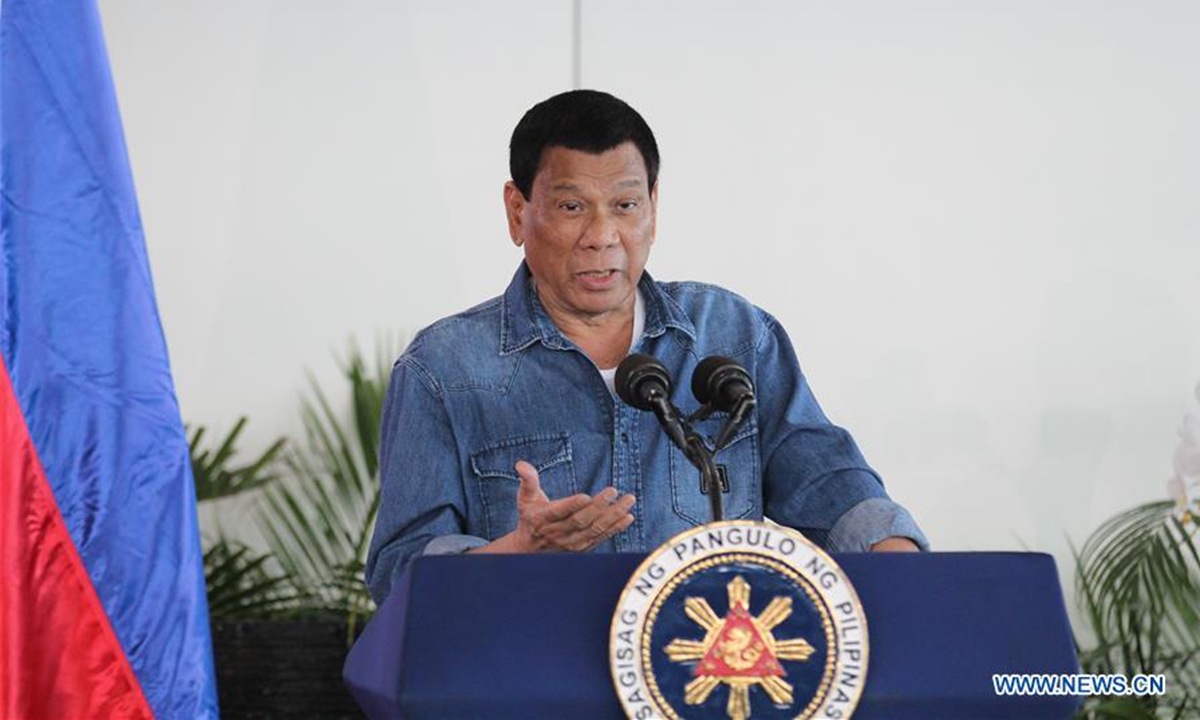All Chinese projects in Philippines to continue as planned: Ambassador
Source: Global Times Published: 2020/9/1 21:28:40

Philippine President Rodrigo Duterte speaks during a news conference in Davao City, the Philippines, April 9, 2018. Philippine President Rodrigo Duterte said that he foresees the relations between China and the Philippines to "bloom into something like a big and beautiful flower" in the coming months. Photo: Xinhua
All Chinese projects in the Philippines will continue as planned despite US sanctions, said Chinese Ambassador to the Philippines Huang Xilian on Tuesday.
The comments came after Philippine presidential spokesperson Harry Roque said on Tuesday that President Rodrigo Duterte has charted an independent foreign policy course that puts the national interest at the core, and the national interest of the Philippines is to ensure the completion of flagship projects under the "Build, Build, Build" program.
The statement from the Philippine authority reversed an earlier remark by the country's foreign minister, who said that he would recommend the government terminate deals with Chinese firms blacklisted under US sanctions.
The US Commerce Department on August 26 extended sanctions to another 24 Chinese firms, putting them on the Entity List for helping build military islands in the South China Sea. Notably, the firms include five companies under China Communications Construction Co, which has had extensive business operations in many markets in Asia and Africa.
"We believe that the pursuit of an independent foreign policy is in line with the fundamental interests of the Philippines and its people," said the Chinese ambassador, noting that the pragmatic cooperation between China and the Philippines has always been based on mutual respect, mutual benefits and win-win results, and all projects are conducted in compliance with existing laws and regulations.
"I believe that any attempt to undermine the normal economic cooperation between China and the Philippines will never succeed," Ambassador Huang said.
The in-depth synergies of China's Belt and Road Initiative and the "Build, Build, Build" program have achieved fruitful results and Chinese companies have made important contributions in this endeavor, Huang noted.
"The move by the US side, under the pretext of protecting the South China Sea, grossly interferes in China's internal affairs and aims to drive a wedge between China and regional countries," Huang said in a statement posted on the embassy's website on Tuesday.
Posted in: ECONOMY